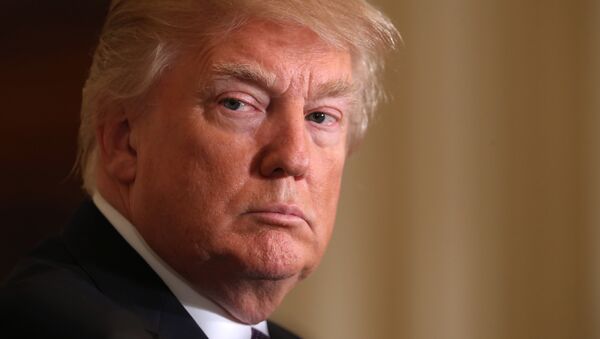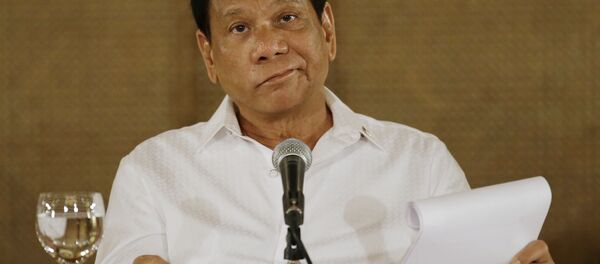According to reports, Donald Trump invited his Filipino counterpart to Washington during a "friendly" phone conversation, the White House said. During the conversation, the parties discussed the fight against drugs and prospects of bilateral relations between the two countries.
In an interview with Sputnik Chinese, political expert from Moscow State University Alexei Fenenko said that the Philippines is one of the main allies of the US in the Asian region and thus there is no doubt that the US will further lend the Philippines unconditional support.
"The US goal is to contain China, and whether it will be the Philippines, Vietnam, or Japan is not that important. At the same time, the Americans do not really want a big war between the Philippines and China in the South China Sea, so they don't exert pressure on the Philippines with regard to this issue. If they press hard, then the situation there, indeed, can lead to a big war," the expert said.
Research fellow at the Institute of Oriental Studies at the Russian Academy of Sciences Elena Fomicheva, in turn, believes that the Philippines has not yet worked out any clear line in its foreign politics. On the one hand, the ASEAN chairmanship pushes Rodrigo Duterte to act more independently, on the other — he is afraid of completely distancing himself from Washington, she noted.
"The Philippines, like Thailand, wants to get out of the American shadow, but at the same time the country is afraid of fully embracing with China, especially since the Philippines has a dispute with China in the South China Sea. Thus, Duterte is maneuvering. There is now a general trend that the ASEAN countries are trying to take a position that allows them to balance between China and the United States and thereby defend their sovereignty," Fomicheva told Sputnik Chinese.
Commenting on Trump's phone conversation with Duterte, the White House representatives noted that the US president is eagerly awaiting participation in the US-ASEAN summit in the Philippines in November.




